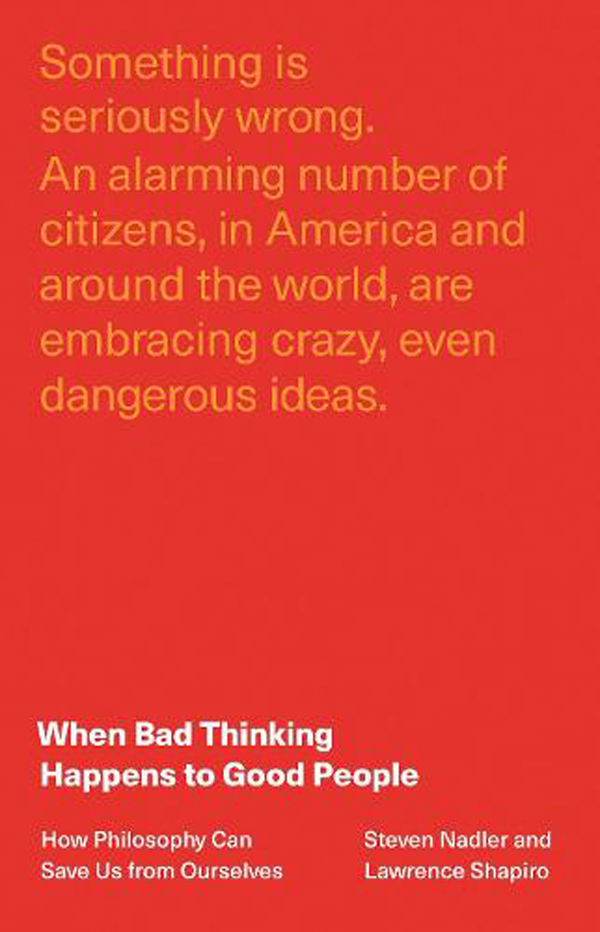Steven Nadler and Lawrence Shapiro’s When Bad Thinking Happens to Good People will be released at the end of this month. The book reflects on the widespread movement of conspiracy theories and the damage that they can cause, particularly in light of the pandemic and the current vaccination programme. Here, the authors list their top 5 educational books, a useful list for those who wish to spend the summer topping up their general knowledge.
01 The Apology of Socrates by Plato
This is where it all begins. There was wisdom (sophia) before Socrates, a kind of technical know-how or skill. But Socrates transformed it into the self-knowledge that comes from knowing who you are, what you know, and how you should live.
02 The Ethics by Spinoza
A difficult philosophical text, but well worth the struggle. Spinoza explains what the ancient Greeks called eudaimonia (wellbeing or flourishing) in a deterministic world without any kind of providential God. He also shows the benefits of eschewing superstitious beliefs and leading the life of reason.

03 Can’t We Talk About Something More Pleasant? by Roz Chast
This graphic book is a humorously serious/seriously humorous and a very moving look at how to deal with a difficult period in one’s life – the death or decline of elderly parents. It struck a chord with both of us.
04 On The Origin of Species by Charles Darwin
A single individual, alone with his thoughts and observations, solves one of the greatest mysteries on earth with a theory so simple a child could understand it. Audacious, literary, meticulous – Darwin’s “one long argument” for evolution by natural selection is science writing at its best.
05 Lucky Jim by Kingsley Amis
Essential reading for any professor who is confident of his or her own importance. Who can resist junior lecturer Jim Dixon’s repertoire of funny faces as he struggles against the classism and arrogance of his superiors?









